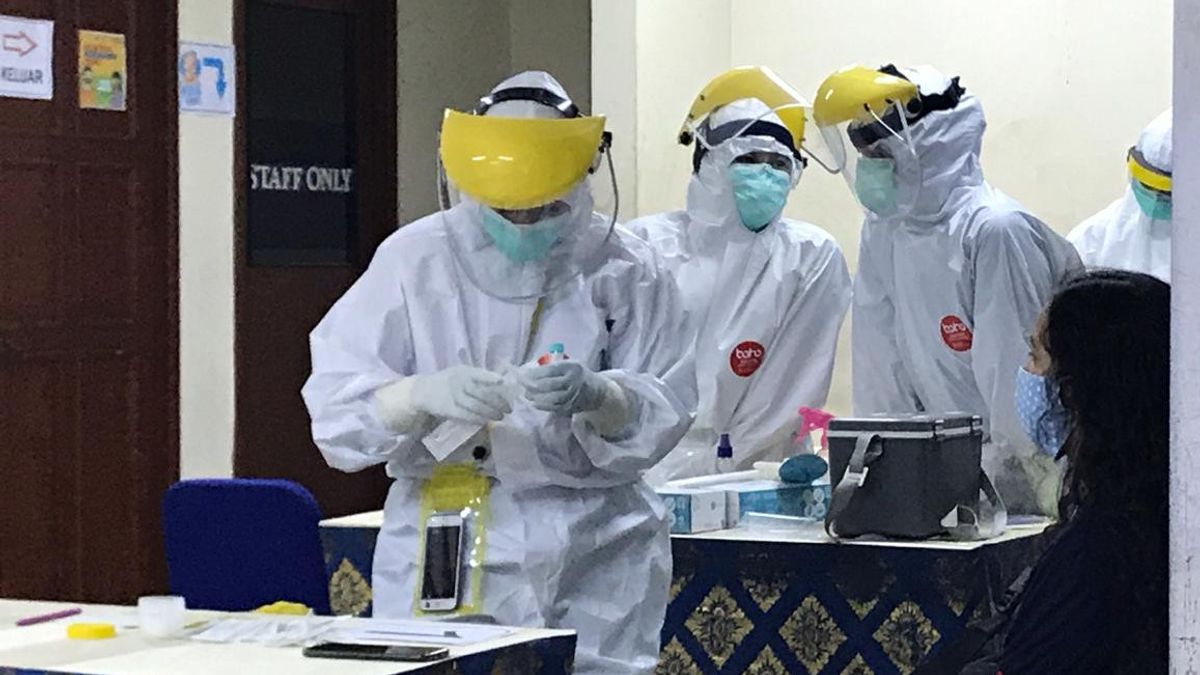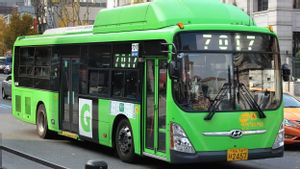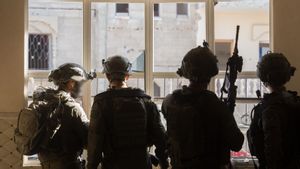JAKARTA - The Task Force for Handling COVID-19 has issued Circular (SE) Number 3 of 2020 regarding the implementation of health protocols during the Christmas and New Year holidays. There are three important points that must be applied by the community as stated in the circular, including the mandatory rapid antigen test.
Spokesperson for the COVID-19 Handling Task Force Wiku Adisasmito said this was implemented to prevent transmission of COVID-19 due to community mobility during the holiday season.
"The experience of the previous three holidays, the mobility of residents always triggers an increase in new cases of transmission. Therefore, residents should be more obedient and disciplined in implementing health protocols. Everything is regulated in this latest circular," Wiku said as quoted in his written statement, Monday, December 21st.
Regarding this rapid antigen test, said Wiku, the intercity air and rail transportation modes must show a negative result certificate using the antigen rapid test no later than 3x24 hours before departure as a travel requirement.
Meanwhile, land travelers, both private and public, are advised to use a rapid antigen test no later than 3x24 hours before departure as a condition for travel. Filling in e-HAC Indonesia is mandatory for travelers using all modes of public and private transportation, except for rail transportation modes.
This rapid antigen is indeed different from the rapid antibody which has been a requirement for travelers.
Quoted from Halodoc, the most fundamental difference is that the rapid antigen test is carried out by the swab method or swab to take samples of nasal and throat secretions. Although the sampling method is the same as the swab test, the results of the rapid antigen test can be obtained faster or around 15 minutes.
Meanwhile, the rapid antibody that has been widely used only uses a sample of blood that is usually taken from the index finger.
Regarding its accuracy, an epidemiologist from the University of Indonesia, Tri Yunis Miko Wahyono, said that the antigen rapid test is more accurate than the antibody rapid test for detecting the corona virus in the body. This test, he said, was carried out by detecting the presence of viral antigens in the body.
"The rapid antigen test for screening has better accuracy than the rapid antibody test. For the rapid antibody test, there is still up to 20 percent inaccuracy. If this is only 5 to 10 percent," said Miko to VOI some time ago.
However, he considered that the rapid antigen screening test as a requirement for travelers only minimizes the risk of transmission on the way from the initial place to the destination.
Meanwhile, travelers can still potentially catch COVID-19 when they are active in their destination during the Christmas and New Year 2021 holidays.
"Once they reach their destination, it depends on each person. They still have a risk of transmission when he returns from his trip. You don't know, if the place he went to is a high risk of transmission of the corona virus or not," said Miko.
Therefore, according to Miko, the risk of increasing COVID-19 cases still exists even though the requirements for rapid antigen testing are enforced. This depends on the extent to which improved health protocols are implemented after the end of the year holiday season.
The English, Chinese, Japanese, Arabic, and French versions are automatically generated by the AI. So there may still be inaccuracies in translating, please always see Indonesian as our main language. (system supported by DigitalSiber.id)













